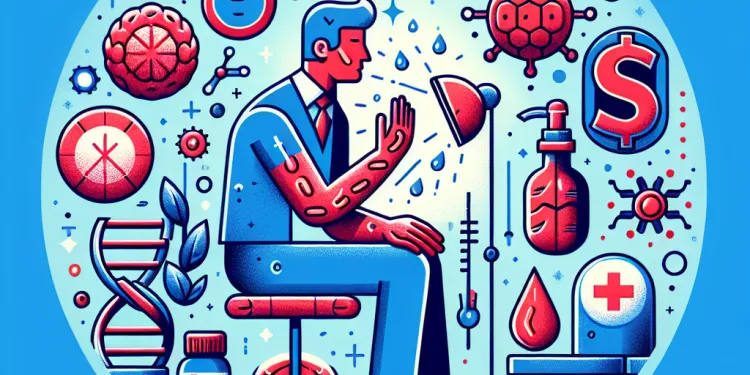
Find Help
More Items From Ergsy search
-
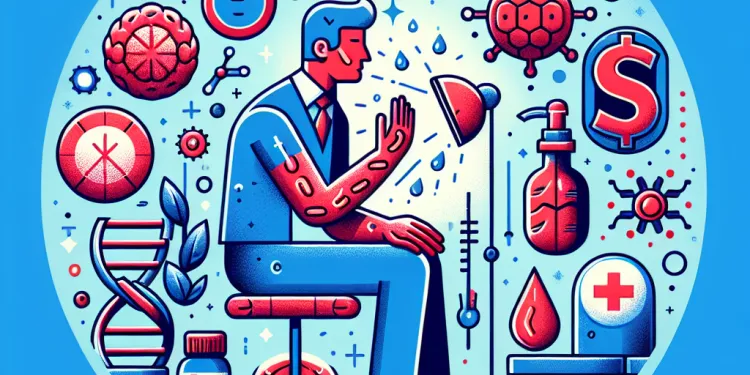
What causes eczema?
Relevance: 100%
-

Can dust mites cause asthma and eczema?
Relevance: 82%
-
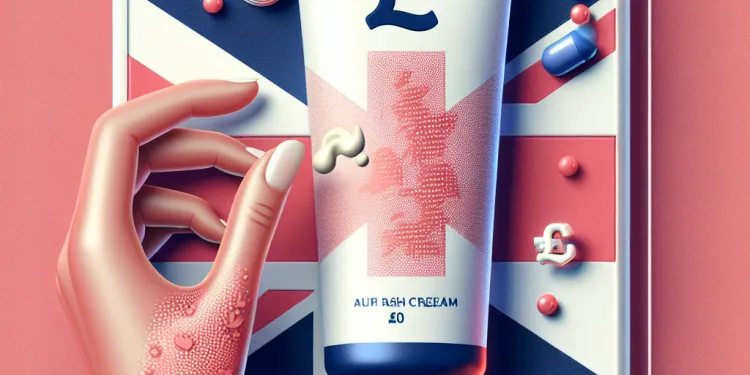
Is there a cure for eczema?
Relevance: 79%
-

Is eczema contagious?
Relevance: 78%
-

What is eczema? General Information
Relevance: 74%
-

What are the main types of eczema?
Relevance: 71%
-
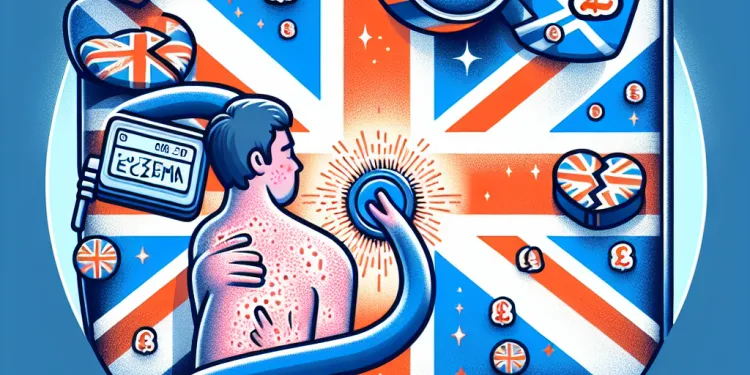
How can eczema be diagnosed?
Relevance: 71%
-
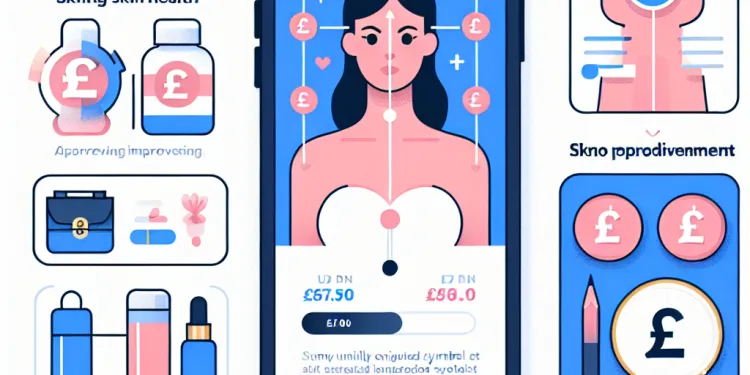
Can eczema improve with age?
Relevance: 70%
-

Factors that trigger eczema in your child
Relevance: 70%
-

What treatments are available for eczema?
Relevance: 70%
-

Who is at risk of developing eczema?
Relevance: 69%
-

Are there any home remedies for eczema?
Relevance: 68%
-

Can diet affect eczema?
Relevance: 68%
-

Managing and treating your child's eczema
Relevance: 67%
-

How can I prevent eczema flare-ups?
Relevance: 66%
-

Eczema - Your child's appointment | Dermatology | Paediatrics
Relevance: 65%
-

What are common symptoms of eczema?
Relevance: 51%
-

How does weather affect eczema?
Relevance: 49%
-

What causes asthma?
Relevance: 39%
-

Can scabies cause complications?
Relevance: 36%
-

Causes of a sore throat
Relevance: 31%
-

What causes shingles?
Relevance: 31%
-

What causes hypotony?
Relevance: 30%
-

What causes autism?
Relevance: 30%
-

What causes tinnitus?
Relevance: 30%
-

What causes shingles?
Relevance: 30%
-

BSL - Causes of insomnia
Relevance: 30%
-

What causes appendicitis?
Relevance: 30%
-

What causes BPH?
Relevance: 30%
-
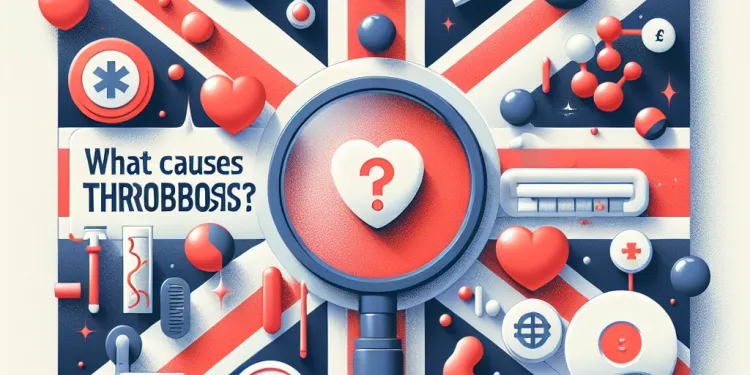
What causes thrombosis?
Relevance: 30%
-

What causes ADHD?
Relevance: 30%
-

What causes obesity?
Relevance: 29%
-

What causes sunburn?
Relevance: 29%
-

What causes SAD?
Relevance: 29%
-
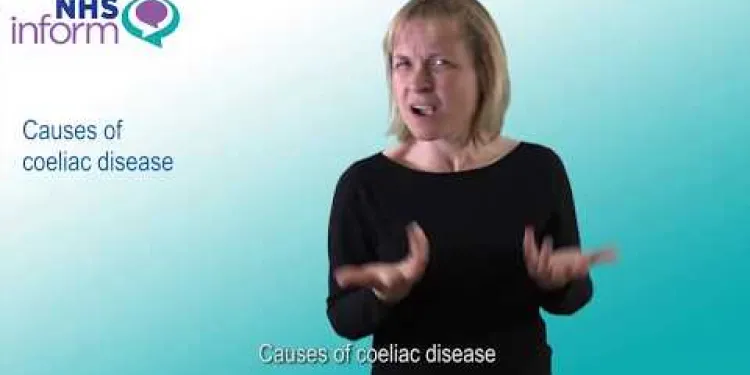
Causes of coeliac disease
Relevance: 29%
-
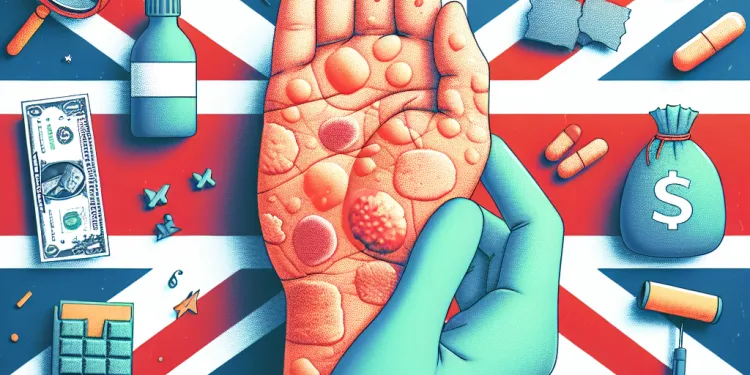
What causes psoriasis?
Relevance: 29%
-
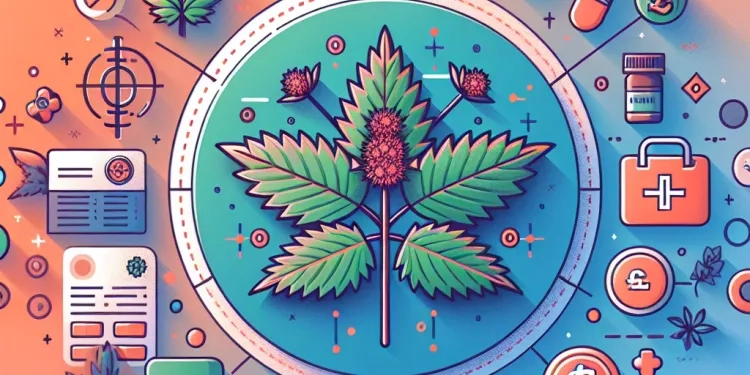
What causes nettle rash?
Relevance: 29%
-
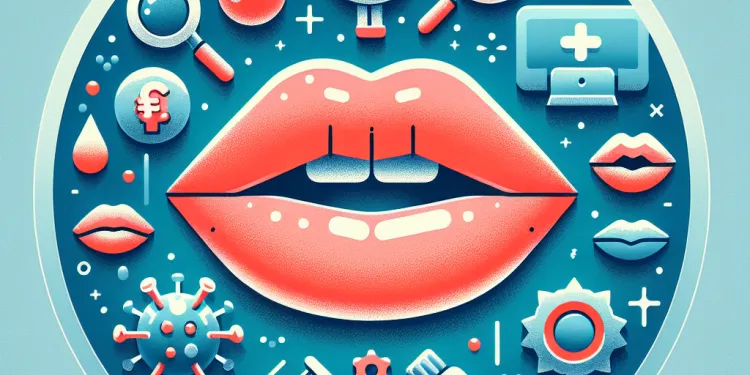
What causes cold sores?
Relevance: 29%
-

What causes jaundice in newborns?
Relevance: 29%
-

Can health-related anxiety cause physical symptoms?
Relevance: 29%
Understanding Eczema
Eczema, also known as atopic dermatitis, is a chronic skin condition that leads to inflamed, itchy, and sometimes blistered patches of skin. It is a common condition that affects many individuals, though the symptoms and severity can vary greatly. Understanding what causes eczema is essential to managing and potentially alleviating its effects.
Genetic Factors
One of the primary causes of eczema is genetic predisposition. Studies suggest that if one or both parents have eczema or related atopic conditions such as asthma or hay fever, their children are more likely to develop eczema. This is due to inherited genes that may affect the skin’s barrier function and immune response. Faulty genes such as those responsible for skin proteins like filaggrin, which helps maintain the integrity of the skin barrier, can make the skin more susceptible to irritants and allergens.
Environmental Triggers
The environment plays a significant role in triggering or exacerbating eczema symptoms. Common environmental factors include exposure to allergens like dust mites, pollen, or pet dander. Other irritants such as soaps, detergents, and certain fabrics can also provoke an outbreak. Furthermore, weather conditions, particularly cold and dry weather, can lead to increased incidence of eczema flare-ups by drying out the skin and compromising its barrier function. Stress and excess heat can also act as significant aggravators for many individuals.
Immune System and Inflammatory Response
Eczema is closely linked to the immune system's functioning. In people with eczema, the immune system often overreacts to seemingly harmless substances, leading to inflammation. This inflammatory response can cause the red, itchy, and inflamed patches characteristic of eczema. Understanding this hyperactivity of the immune system helps explain why certain treatments that target immune function can be effective in reducing symptoms.
Skin Barrier Defects
A defective skin barrier is another critical factor in the development of eczema. Normally, the skin barrier protects against irritants, allergens, and pathogens while retaining moisture. In eczema patients, this barrier is often weakened, leading to increased susceptibility to irritants and allergen exposure, allowing them to penetrate the skin more easily. This permeability contributes to the cycle of irritation and inflammation experienced during eczema flares.
Conclusion
While the exact causes of eczema can be multifaceted and differ from person to person, a combination of genetic, environmental, and immunological factors generally contribute to its development. Understanding these factors is crucial in managing the condition effectively. For those affected by eczema in the UK, working closely with healthcare providers to identify personal triggers and effective treatments can significantly improve quality of life.
Understanding Eczema
Eczema is a skin problem. It can make your skin red, itchy, and sometimes bumpy. It is a common problem. Many people have it, but it can be different for everyone. Learning about what causes eczema can help us make it better.
Family Causes
Sometimes eczema is in the family. If your mom or dad has eczema, asthma, or hay fever, you might have eczema too. This is because of the genes you get from them. Some genes help keep your skin strong. If these genes do not work well, your skin may get itchy and red more easily.
Things Around Us
Things like dust, pollen, or pet hair can make eczema worse. Soaps, detergents, and some clothes can also make the skin itchy. Cold weather or very dry air can make eczema worse too. Being stressed or too hot can also make your skin flare up.
Body’s Defense System
People with eczema have a sensitive defense system in their bodies. This system reacts too much to things that are usually not harmful. This can cause the skin to get red and itchy. Some treatments help by calming down this part of the body.
Skin Protection
Normally, our skin keeps bad things out and holds on to water. But for people with eczema, this protection is weak. This means dust or soap can get in more easily and make the skin itchy and red. This makes eczema worse, and the skin needs extra care to stay moist and strong.
Conclusion
Eczema happens because of different reasons. It can run in families and be caused by things around us and how our body works. Knowing what causes your eczema can help you and your doctor find the best way to make it better. If you have eczema, it is important to talk to a doctor to find what makes your eczema worse and how you can treat it.
Frequently Asked Questions
What is eczema?
Eczema, also known as atopic dermatitis, is a condition that makes your skin red and itchy.
What causes eczema?
The exact cause of eczema is unknown, but it is thought to involve a combination of genetic and environmental factors.
Is eczema hereditary?
Yes, eczema can run in families, suggesting a genetic component.
What environmental factors can trigger eczema?
Certain triggers such as allergens, air pollutants, harsh soaps, and cosmetic products can exacerbate eczema.
Can stress cause eczema?
Stress does not directly cause eczema, but it can worsen the symptoms.
How does the immune system affect eczema?
Eczema is associated with an overactive response by the body's immune system to an irritant.
Can food allergies cause eczema?
Food allergies can trigger eczema in some individuals, particularly in infants and children.
Is eczema contagious?
No, eczema is not contagious and cannot be spread from person to person.
How does the skin barrier relate to eczema?
A compromised skin barrier is a contributor to eczema, allowing moisture to escape and irritants to enter.
Can climate affect eczema?
Yes, dry climates and cold weather can cause eczema to flare up.
Are there different types of eczema?
Yes, there are several types of eczema, including atopic dermatitis, contact dermatitis, and dyshidrotic eczema.
Can hormones influence eczema?
Yes, hormonal changes can trigger or worsen eczema, especially in women.
What role do allergens play in eczema?
Allergens such as pollen, dust mites, and pet dander can trigger eczema flare-ups.
Can infections cause eczema?
Infections like staphylococcus bacteria on the skin can exacerbate eczema symptoms.
Does sun exposure affect eczema?
Sun exposure can have varying effects, but for some, it may improve symptoms while worsening others.
How does water exposure impact eczema?
Excessive water exposure can strip the skin of its natural oils, exacerbating eczema.
Can clothing materials cause eczema?
Yes, certain materials like wool and synthetic fabrics can irritate the skin and trigger eczema.
Is there a link between eczema and asthma?
Eczema, asthma, and allergic rhinitis often occur together and are part of the atopic march.
Can certain chemicals trigger eczema?
Yes, exposure to harsh chemicals like those in detergents and cleaning products can trigger eczema.
How can I manage triggers to prevent eczema flare-ups?
Identifying and avoiding personal triggers, maintaining a proper skincare routine, and using prescribed treatments can help manage eczema.
What is eczema?
Eczema is a skin problem. It makes the skin red, dry, and itchy. Some people might get small bumps on their skin.
Here are some ways to feel better:
- Put cream on the skin to keep it soft.
- Try not to scratch the itchy parts.
- If it bothers you a lot, talk to a doctor for help.
Eczema is a skin problem that makes your skin red and itchy. Some people also call it atopic dermatitis.
Why do people get eczema?
We do not know exactly what causes eczema. But it might be because of the genes you get from your parents and things around you like weather or things you touch.
Can you get eczema from your family?
Eczema can run in families. This means if your parents or grandparents have eczema, you might get it too.
Ask your doctor or nurse to help you understand eczema better.
Look at pictures or videos about eczema. These can help you learn more.
Yes, eczema can run in families. This means it might be in your genes.
What makes eczema worse?
Eczema is a skin problem that can get worse with certain things. Here are some things that can make eczema worse: - **Soap and Detergents:** Some soaps and washing liquids can make skin dry. - **Weather:** Hot or cold weather can bother the skin. - **Dust and Pollen:** These can make itching worse. - **Clothes:** Wool or scratchy clothes can make skin itchy. - **Stress:** Feeling upset can make eczema worse. If you have eczema, it might help to: - Use gentle soap and skin cream. - Wear soft clothes, like cotton. - Keep your skin cool and not too dry. - Ask a grown-up or doctor for help if you're not sure. Remember, everyone is different. What bothers one person's skin might be okay for another.Certain things can make eczema worse. These include:
- Things that cause allergies
- Dirty air
- Strong soaps
- Makeup products
You can try using gentle soaps and lotions. It might help to stay away from things that bother your skin. A doctor or nurse might have other helpful ideas.
Can stress make eczema worse?
Stress can make your skin condition, like eczema, worse. When you feel worried or nervous, your body reacts. This can make your skin itchy and red. Try to stay calm.
You can do simple things to feel better, like:
- Breathing slowly and deeply
- Talking to someone you trust
- Listening to music
- Doing activities you enjoy
If you need more help, a doctor or nurse can give you advice.
Stress does not make eczema happen, but it can make eczema worse.
How does the body's defense system affect eczema?
The body's defense system helps protect us from germs. Sometimes, it gets confused and attacks the skin by mistake. This is what causes eczema. The skin can become red, itchy, and sore.
If you have eczema, you can try these things:
- Use creams to make the skin soft.
- Stay away from things that make it worse, like certain soaps or clothes.
- Ask a doctor for help if it is very bad. They can give medicine.
It can help to talk to someone if you feel upset. You can also use pictures or videos to learn more about eczema.
Eczema happens when the body reacts too strongly to something that bothers it. This is because the body's defense system goes into action.
- You can use soothing creams to help with itchy skin.
- Try wearing soft, cotton clothes.
- Stay away from things that make your skin itch.
- Ask a grown-up to help you if you are worried.
Can food allergies make your skin itchy?
Sometimes, certain foods can make skin problems like eczema worse, especially in babies and young kids.
Can you catch eczema from someone else?
No, you cannot catch eczema from someone else. It does not spread from one person to another.
How is eczema linked to the skin barrier?
Your skin has a top layer. This is called the skin barrier. It keeps water in and germs out. When this layer is not strong, it can cause eczema. Eczema makes your skin dry, red, and itchy.
Some things can help:
- Use gentle soap.
- Put on lotion to keep your skin soft.
- Wear soft clothes.
- Try not to scratch.
Ask an adult or doctor if you need help.
A damaged skin barrier can make eczema worse. This is because it lets water leave the skin and lets bad things in.
Can weather change skin problems?
Weather can change how our skin feels. Hot weather can make skin itchy and dry. Cold weather can do this too. If you have skin problems like eczema, the weather can make it better or worse.
Here are some things that can help:
- Use lotion to keep skin soft.
- Wear soft clothes; avoid rough or itchy ones.
- Stay cool when it is hot, and warm when it is cold.
Talk to a grown-up or a doctor if your skin feels very bad. They can help you find ways to feel better.
Yes, dry places and cold weather can make eczema worse.
Are there different types of eczema?
Yes, there are different kinds of eczema. Eczema is a skin problem that can make your skin itchy and red.
Here are some types:
- Atopic dermatitis: This is the most common type. It can make your skin dry and itchy.
- Contact dermatitis: This happens when your skin touches something that makes it sore.
- Dyshidrotic eczema: This type can cause small blisters on your hands and feet.
If you have trouble reading, you can try using pictures and videos to help you understand. You can also ask someone to read with you.
Yes, there are different kinds of eczema. These include atopic dermatitis, contact dermatitis, and dyshidrotic eczema.
Do hormones affect eczema?
Yes, changes in hormones can make eczema start or get worse. This happens a lot in women.
How do allergens affect eczema?
Eczema is when your skin gets itchy and red.
Allergens are tiny things that can make eczema worse. These can be dust, pet fur, or certain foods.
If you have eczema, it's good to know what makes your skin feel bad.
You can talk to a doctor to help find out which allergens bother you.
Using creams and keeping the skin clean can also help.
Things like pollen from plants, dust from tiny bugs, and fur or skin flakes from pets can make eczema worse.
Can infections make eczema happen?
Infections, like a germ called staphylococcus on the skin, can make eczema worse.
Does the sun change eczema?
Does being in the sun make eczema better or worse?
Sometimes the sun can help eczema. It might make your skin feel better. But too much sun can also hurt your skin.
If you have eczema, talk to a doctor about how much sun is safe for you.
Tools that can help:
- Use sunscreen to protect your skin.
- Wear a hat and long clothes to cover your skin.
- Go into the shade if the sun is too hot.
The sun can do different things to people. For some people, the sun makes them feel better. For other people, the sun can make them feel worse.
How does water affect eczema?
If you get your skin too wet a lot, it can take away your skin's natural oils. This can make eczema worse.
Can clothes make your skin itchy?
Some clothes can make your skin feel itchy and sore. This is called eczema.
Here's how to keep your skin feeling good:
- Wear soft clothes, like cotton.
- Avoid scratchy clothes, like wool.
- Wash new clothes before wearing them.
- Use gentle soap for washing.
Ask an adult to help you choose the right clothes. If your skin feels itchy, talk to an adult or see a doctor.
Yes, some clothes can make your skin itchy and cause a rash. These clothes are made from things like wool and man-made fabrics.
Helpful tips:
- Wear soft clothes made from cotton.
- Use gentle soap to wash your clothes.
- If your skin feels itchy, ask an adult for some cream to help.
Does eczema have a connection with asthma?
Do eczema and asthma go together?
Eczema is when your skin gets red and itchy.
Asthma is when it's hard to breathe.
There might be a connection between them.
If you have eczema, you might also get asthma.
Here are some ways to help:
- See a doctor for advice.
- Ask questions if you don’t understand.
- Write down what the doctor says to remember later.
Eczema, asthma, and hay fever often happen together. This is called the atopic march.
Can some things make eczema start?
Yes, harsh chemicals in things like soap and cleaning products can make eczema worse.
How can I stop things that make my eczema worse?
Eczema is when your skin gets itchy and sore. It can get worse because of certain things called triggers. Here is how you can stop eczema from getting worse:
- Try to stay away from things that make your skin itchy. These can be things like certain soaps, perfumes, or clothes.
- Keep your skin soft and not too dry. You can use lotions or creams.
- Take short showers with warm (not hot) water.
- Wear loose and soft clothes, like cotton.
- If you get itchy, try not to scratch. You can pat your skin or use a cold cloth.
If you are not sure what makes your eczema worse, you can ask a doctor for help.
To help with eczema:
1. Find out what makes your skin itchy and try to avoid those things.
2. Take care of your skin every day. Clean it gently and use cream to keep it soft.
3. Use any creams or medicine the doctor gives you.
Support tools to help understand:
- Use pictures or videos that show how to take care of your skin.
- Ask someone you trust for help if you don't understand.
Useful Links
This website offers general information and is not a substitute for professional advice.
Always seek guidance from qualified professionals.
If you have any medical concerns or need urgent help, contact a healthcare professional or emergency services immediately.
Some of this content was generated with AI assistance. We’ve done our best to keep it accurate, helpful, and human-friendly.
- Ergsy carfully checks the information in the videos we provide here.
- Videos shown by Youtube after a video has completed, have NOT been reviewed by ERGSY.
- To view, click the arrow in centre of video.
- Most of the videos you find here will have subtitles and/or closed captions available.
- You may need to turn these on, and choose your preferred language.
- Go to the video you'd like to watch.
- If closed captions (CC) are available, settings will be visible on the bottom right of the video player.
- To turn on Captions, click settings .
- To turn off Captions, click settings again.
More Items From Ergsy search
-

What causes eczema?
Relevance: 100%
-

Can dust mites cause asthma and eczema?
Relevance: 82%
-

Is there a cure for eczema?
Relevance: 79%
-

Is eczema contagious?
Relevance: 78%
-

What is eczema? General Information
Relevance: 74%
-

What are the main types of eczema?
Relevance: 71%
-

How can eczema be diagnosed?
Relevance: 71%
-

Can eczema improve with age?
Relevance: 70%
-

Factors that trigger eczema in your child
Relevance: 70%
-

What treatments are available for eczema?
Relevance: 70%
-

Who is at risk of developing eczema?
Relevance: 69%
-

Are there any home remedies for eczema?
Relevance: 68%
-

Can diet affect eczema?
Relevance: 68%
-

Managing and treating your child's eczema
Relevance: 67%
-

How can I prevent eczema flare-ups?
Relevance: 66%
-

Eczema - Your child's appointment | Dermatology | Paediatrics
Relevance: 65%
-

What are common symptoms of eczema?
Relevance: 51%
-

How does weather affect eczema?
Relevance: 49%
-

What causes asthma?
Relevance: 39%
-

Can scabies cause complications?
Relevance: 36%
-

Causes of a sore throat
Relevance: 31%
-

What causes shingles?
Relevance: 31%
-

What causes hypotony?
Relevance: 30%
-

What causes autism?
Relevance: 30%
-

What causes tinnitus?
Relevance: 30%
-

What causes shingles?
Relevance: 30%
-

BSL - Causes of insomnia
Relevance: 30%
-

What causes appendicitis?
Relevance: 30%
-

What causes BPH?
Relevance: 30%
-

What causes thrombosis?
Relevance: 30%
-

What causes ADHD?
Relevance: 30%
-

What causes obesity?
Relevance: 29%
-

What causes sunburn?
Relevance: 29%
-

What causes SAD?
Relevance: 29%
-

Causes of coeliac disease
Relevance: 29%
-

What causes psoriasis?
Relevance: 29%
-

What causes nettle rash?
Relevance: 29%
-

What causes cold sores?
Relevance: 29%
-

What causes jaundice in newborns?
Relevance: 29%
-

Can health-related anxiety cause physical symptoms?
Relevance: 29%


